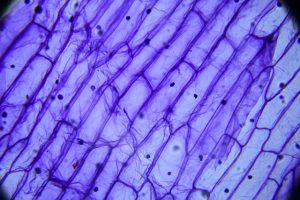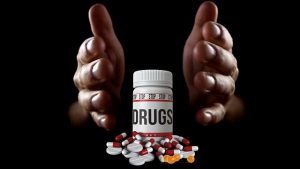Effective Relapse Prevention Strategies in NJ’s Drug Rehab Programs with CBT and Support Group Focus
New Jersey offers robust drug rehab programs that emphasize personalized relapse prevention strategies, integrating Cognitive Behavioral Therapy (CBT) with motivational interviewing. These evidence-based treatments are tailored to individual needs and foc…….

New Jersey offers robust drug rehab programs that emphasize personalized relapse prevention strategies, integrating Cognitive Behavioral Therapy (CBT) with motivational interviewing. These evidence-based treatments are tailored to individual needs and focus on equipping patients with tools to manage triggers and foster intrinsic motivation for lasting change. The state's rehab centers also incorporate the creation of individualized relapse prevention plans, support from communities like Narcotics Anonymous or Alcoholics Anonymous, and ongoing professional care through counselors and therapists. Additionally, New Jersey's drug rehab facilities provide comprehensive aftercare programs with access to group and individual therapy, drug screenings, and community resources to support sustained sobriety. Support groups in the state are crucial for individuals post-rehabilitation, offering a nurturing environment where members can share experiences and strategies to reinforce their recovery journey. These groups complement the care received in rehab centers by providing emotional support, mutual aid, and accountability. New Jersey's drug rehab programs stand out for their effective use of CBT and commitment to delivering high-quality addiction treatment services.
1. Relapse prevention strategies in New Jersey’s drug rehab programs are multifaceted, employing diverse therapeutic approaches to support sustained recovery.
2. These centers tailor their relapse prevention techniques, ensuring a comprehensive approach that addresses individual needs, challenges, and circumstances.
3. Support groups emerge as pivotal players in the post-rehabilitation phase, offering ongoing peer-based encouragement and guidance in New Jersey.
4. Cognitive Behavioral Therapy (CBT) is often integral to relapse prevention plans within these facilities, aiming to modify patterns of thinking and behavior associated with substance use.
5. Personalized treatment regimens are highlighted for their role in enhancing the effectiveness of relapse prevention efforts in New Jersey’s rehabilitation centers.
6. Family therapy is a significant element within New Jersey drug rehab programs, fostering a supportive environment and promoting healthy family dynamics as part of relapse prevention.
7. The article delineates evidence-based practices employed by New Jersey’s drug rehab facilities to inform and guide relapse prevention, grounded in scientific research.
8. Aftercare’s significance in upholding long-term sobriety is emphasized post-rehabilitation, with New Jersey programs offering structured support systems.
9. Challenges in relapse prevention are identified and addressed through strategic interventions and educational resources within these recovery programs.
10. Alumni programs in New Jersey’s drug rehab centers serve as a vital network for ongoing support, reinforcing relapse prevention strategies long after treatment concludes.
11. Complementary therapies such as meditation, exercise, and nutrition counseling are showcased for their role in bolstering relapse prevention plans in these settings.
12. Medication-Assisted Treatment (MAT) is a cornerstone of effective relapse prevention strategies, providing medical support to manage cravings and mitigate withdrawal symptoms.
13. Recognizing common relapse triggers allows individuals and their loved ones to develop proactive strategies for managing these moments within New Jersey’s recovery-focused environment.
14. The distinctions between outpatient and inpatient programs in relapse prevention are explored, highlighting the unique benefits and considerations of each approach in New Jersey.
15. Long-term outcomes of relapse prevention in drug rehab centers across New Jersey are examined to provide a comprehensive understanding of the potential for sustained recovery.
- What Are the Most Effective Relapse Prevention Strategies in Drug Rehab Programs in New Jersey?
- How Do New Jersey's Drug Rehab Centers Approach Relapse Prevention for Sustained Recovery?
- What Role Do Support Groups Play in Post-Rehab Relapse Prevention in NJ?
- Can Cognitive Behavioral Therapy (CBT) Be a Key Component of Relapse Prevention in New Jersey's Drug Rehab Facilities?
What Are the Most Effective Relapse Prevention Strategies in Drug Rehab Programs in New Jersey?

In the realm of substance abuse treatment, relapse prevention stands as a critical component in drug rehab programs across New Jersey. Effective relapse prevention strategies are multifaceted and tailored to address the unique challenges individuals face when transitioning from active addiction to sustained recovery. These strategies often involve cognitive-behavioral therapy (CBT), which equips patients with coping mechanisms to manage triggers and prevent destructive behaviors. Additionally, motivational interviewing is employed to reinforce the patient’s intrinsic motivation for change.
Drug rehab New Jersey programs integrate evidence-based practices that include the development of a personalized relapse prevention plan. This plan typically outlines specific high-risk situations and provides concrete actions to take when encountering them. Group support systems, such as Narcotics Anonymous or Alcoholics Anonymous, often play a pivotal role in these plans. They offer a network of peers who understand the challenges and can provide accountability and encouragement. Furthermore, ongoing access to professional support through counselors and therapists helps individuals navigate the complexities of early recovery, making the strategies employed by New Jersey’s drug rehab programs both robust and responsive to individual needs.
How Do New Jersey's Drug Rehab Centers Approach Relapse Prevention for Sustained Recovery?

New Jersey’s drug rehab centers employ a comprehensive, multifaceted approach to relapse prevention as part of their sustained recovery programs. These centers understand that recovery is a continuous journey and that relapse can be part of that process. To this end, they integrate evidence-based practices with personalized treatment plans. A key component of these strategies involves teaching individuals in recovery about the nature of addiction, its triggers, and coping mechanisms to manage cravings and avoid high-risk situations. The centers also emphasize the importance of a strong support network, which may include family therapy, peer support groups like Alcoholics Anonymous or Narcotics Anonymous, and ongoing counseling. By providing patients with practical tools and a clear understanding of their triggers, New Jersey’s drug rehab centers aim to equip them with the skills needed to navigate life’s challenges without resorting to substance use.
In addition to individualized therapy sessions, these centers offer various aftercare programs designed to support recovery beyond the initial treatment phase. These aftercare services can include continued access to group therapy, individual counseling, and regular drug screening to help maintain accountability. Furthermore, New Jersey’s drug rehab centers often work in collaboration with community organizations and healthcare providers to ensure a holistic approach to sustained recovery. This collaborative network of care ensures that individuals have access to resources tailored to their unique needs, thus increasing the likelihood of long-term abstinence and overall well-being. Drug Rehab New Jersey centers are at the forefront of providing comprehensive relapse prevention strategies, making them a vital resource in the fight against addiction.
What Role Do Support Groups Play in Post-Rehab Relapse Prevention in NJ?

In New Jersey, support groups play a pivotal role in the post-rehabilitation journey of individuals who have completed drug rehab programs. These groups offer a structured environment where recovering individuals can share experiences, challenges, and successes with peers who understand firsthand the trials of overcoming substance abuse. The camaraderie and mutual support found within these groups serve as a powerful tool against relapse, providing a network of understanding and accountability that extends beyond the formal structure of a rehab facility. Members often find solace in knowing they are not alone in their struggles, which can be particularly comforting during moments of vulnerability or temptation. The meetings, many of which follow well-established programs like Alcoholics Anonymous or Narcotics Anonymous, offer evidence-based strategies and a shared set of principles aimed at reinforcing the skills learned in rehab, emphasizing coping mechanisms, and fostering resilience against triggers that may lead to relapse. In New Jersey, these support groups are accessible throughout the state, with numerous locations offering regular meetings, ensuring that individuals have ongoing access to a supportive recovery community that is integral to maintaining long-term sobriety.
Can Cognitive Behavioral Therapy (CBT) Be a Key Component of Relapse Prevention in New Jersey's Drug Rehab Facilities?

In New Jersey’s comprehensive approach to drug rehabilitation, Cognitive Behavioral Therapy (CBT) often plays a pivotal role in relapse prevention strategies within drug rehab New Jersey programs. This evidence-based therapeutic technique is tailored to help individuals recognize and reframe negative thought patterns that may trigger substance use. By addressing the underlying thoughts and feelings that precede drug use, CBT empowers patients with coping mechanisms to manage cravings and navigate high-risk situations without resorting to drugs. This proactive approach is particularly effective in the continuum of care provided by New Jersey’s drug rehab facilities, where personalized treatment plans are essential for long-term recovery.
The integration of CBT in drug rehab New Jersey programs is a strategic response to the complex nature of addiction. It complements other relapse prevention methods by providing patients with tools to modify their responses to stressors and triggers that could potentially lead to relapse. Incorporating CBT within these facilities not only aligns with the best practices in the field but also reflects the state’s commitment to offering high-quality, effective care for those seeking recovery from substance use disorders. Through this therapeutic modality, individuals in New Jersey’s drug rehab centers can develop a robust framework for maintaining abstinence and fostering resilience against the challenges of recovery.
In concluding, New Jersey’s approach to relapse prevention in drug rehab programs is multifaceted and comprehensive, leveraging a blend of effective strategies tailored to individual needs. Cognitive Behavioral Therapy stands out as a pivotal tool, helping individuals adapt thought patterns that support long-term recovery. Support groups further this process by providing ongoing peer encouragement and shared experiences that reinforce the skills learned in rehab. These community resources serve as a critical safety net for those navigating the challenges of sobriety. Ultimately, the commitment to robust relapse prevention strategies within New Jersey’s drug rehab facilities underscores the state’s dedication to sustained recovery. For those seeking support, these programs offer a structured and supportive path forward in the journey toward health and wellness.









